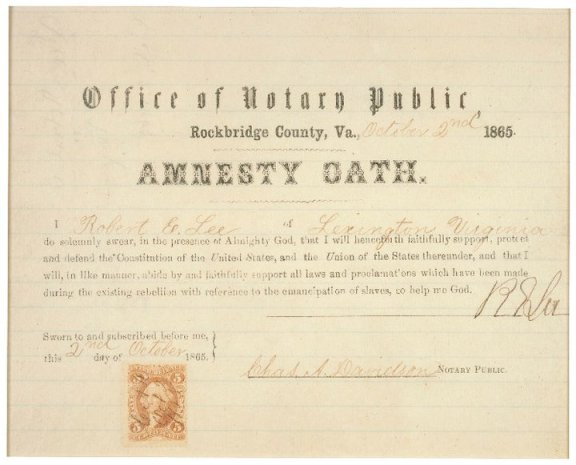
This week saw the 150th anniversary of the first Battle of Manassas, with hundreds of reenactors and spectators ignoring the extreme heat and coming to the Virginia battlefield.
There was another, stranger Civil War anniversary today.
On July 22, 1975, the House of Representatives joined the Senate in voting to restore full American citizenship to Confederate General Robert E. Lee. The joint resolution made the restoration retroactive to June 13, 1865.
More than a hundred years earlier, Lee had signed his Amnesty Oath in Lexington, Virginia, on October 2, 1865, the same day he was inaugurated as president of Washington College. He swore to defend the Constitution and all laws that had “been made during the existing rebellion with reference to the emancipation of slaves.”
Lee died in October 1870.
Why did it take so long for his citizenship to be restored if he had signed an amnesty oath? According to this Facebook post from the National Archives at Boston, “Apparently Secretary of State William H. Seward had given Lee’s application to a friend as a souvenir, and the State Department had pigeonholed the oath.”
The document was filed away with the State Department records, eventually coming to the National Archives, where an archivist came across it in 1970, more than one hundred years later.

